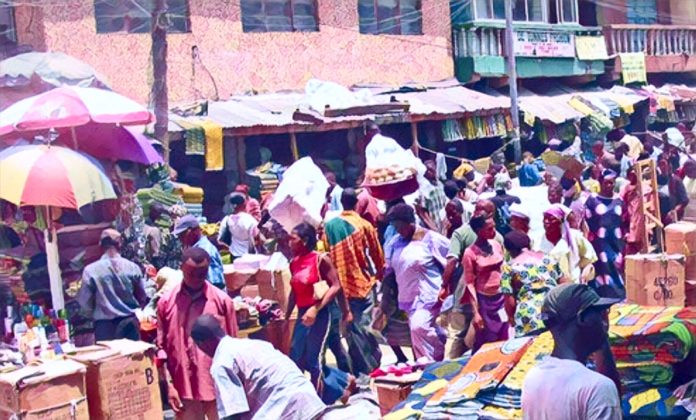Key Points
-
Nigeria’s worsening poverty crisis dominates the World Bank’s latest findings.
-
ADC claims insufficient reform has failed to curb Nigeria’s worsening poverty crisis.
-
Report urges strong governance and social programs to tackle Nigeria’s worsening poverty crisis.
The World Bank says that Nigeria’s poverty picture has gotten worse even after big policy changes. This has led to a strong reaction from the African Democratic Congress (ADC). The opposition party says that even though President Bola Tinubu has made a lot of changes, millions of Nigerians are still struggling with the economy.
The rising numbers show that things are getting worse
According to Mathew Verghis, the World Bank’s Country Director, about 139 million Nigerians live in poverty as of October 2025.
The Nigeria Development Update report “From Policy to People: Bringing the Reform Gains Home” says that number went up from about 129 million in early 2025 and 87 million in 2023. The poverty rate is now close to 61%, up from about 40% in 2019. Inflation is at 20.1 percent year on year, which is hard on families because food costs 70 percent of their income. Since 2019, the price of a basic food basket has gone up five times.
Ifenla Oduyemi, a spokesperson for ADC, said that the numbers “confirm the painful reality millions face every day—a country rich in resources but poor in welfare.” She said that households were not getting help because of policy paralysis, weak safety nets, and high borrowing costs.
The worsening poverty crisis in Nigeria makes it less likely that everyone will be equal
The report says that rural Nigerians are having the hardest time: In rural areas, 75.5% of people are below the poverty line, while only 41.3% of people in cities are below the poverty line. In some northern states, more than 70% of children under 15 live in poverty.
The World Bank says that rising food prices, insecurity, weak infrastructure, and poor service delivery are all making regional gaps bigger. According to the 2018/19 survey, Nigeria’s Gini index showed that inequality was 35.1.
According to a report by Vanguard news, Verghis said that social unrest could grow if reforms don’t lead to higher incomes and better public services. He said that macroeconomic stability alone wasn’t enough; there also needed to be targeted welfare spending for the poor.
Now is the time to call for change and responsibility
ADC is calling for quick policy changes, such as better social protection, changes to the labour market, and more openness in government spending. It also wants lower interest rates and help for small farmers to make up for rising prices. Civil society groups like the Nigeria Civil Society Situation Room and Women in Reform have supported the ADC’s call for stronger safety nets.
Verghis said that Nigeria’s worsening poverty crisis has become a key test of Tinubu’s leadership. The changes, like getting rid of fuel subsidies and making the naira exchange rate the same for everyone, are brave. But if regular Nigerians don’t feel the benefits of growth, the gains might not seem real to them.



